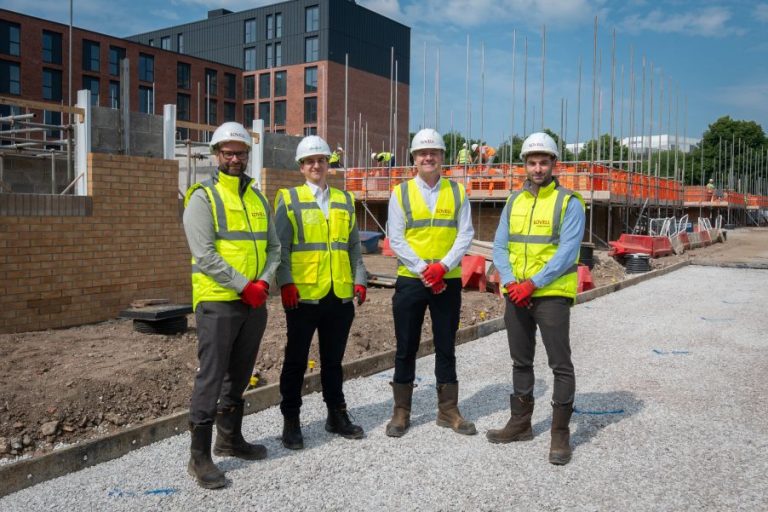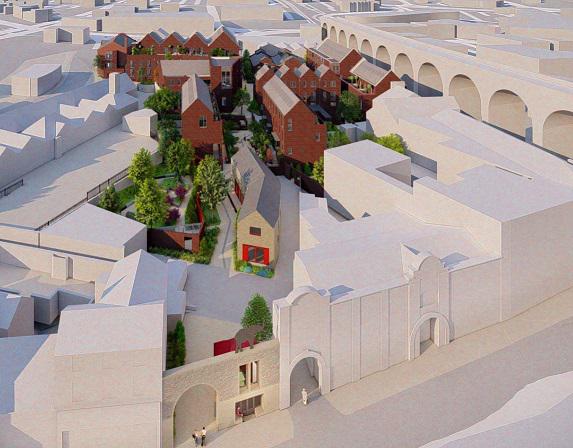Bank of England holds interest rates at 4.25%
UK government backs £25m conservation hub at Twycross Zoo
Twycross Zoo is set to launch a new £25 million Global Conservation Centre, bolstered by £18 million in government funding. Positioned as the UK’s largest-ever public investment in a zoo, the facility aims to become a central hub for international conservation efforts, scientific research, and education.
The site will host a 200-seat lecture theatre overlooking a new Bornean orangutan habitat, research labs, wildlife classrooms, and on-site accommodation for visiting scientists and students. The initiative involves collaboration with eight leading UK universities and is expected to open by late 2026.
In addition to supporting global biodiversity, the centre is designed to generate regional economic value. Estimates suggest that the project will create 90 direct jobs and inject £3.9 million of Gross Value Added (GVA) annually into the local economy.
A new Indonesian-themed zoo zone will open alongside the centre, featuring habitats for threatened species and linked education programmes. Twycross Zoo is also expanding its conservation work in Indonesia through partnerships with Borneo Nature Foundation and Action Indonesia.
The centre supports Twycross Zoo’s wider 2030 strategy, which targets reversing IUCN Red List status for 15 species. Construction begins in June 2025, establishing the Midlands as a growing centre of applied conservation expertise.
Redevelopment of Nottingham Forest’s City Ground takes step forward
New homes prioritise affordability and sustainability in Derbyshire
Work is progressing on a £14.5 million affordable housing scheme in Sandiacre, Derbyshire, led by Nottingham Community Housing Association (NCHA) in partnership with Moorbridge Developments. The 53-home development sits across Gas Street near the River Erewash and Erewash Canal, close to the Grade II-listed Springfield Mill.
The project includes 22 shared ownership homes and 31 for affordable rent, all managed through Erewash Borough Council’s Home Options system. Properties will range from two to four bedrooms and are designed with high energy performance in mind. Each unit features solar panels, electric vehicle charging points, private gardens, and allocated parking. All homes are built to EPC A rating using a fabric-first construction method to improve energy efficiency and reduce running costs.
NCHA’s delivery is supported by funding from Homes England as part of a strategic push to expand affordable housing across the East Midlands through 2028. The site, designed by Urban Plus and built by Moorbridge Developments, aims to blend sustainability with the area’s industrial heritage.
Construction has already started, with the first homes expected to be ready by autumn. Full project completion is scheduled for summer 2026.
Planning document approved to make it easier to ‘green’ new Nottingham developments
- Energy and carbon reduction: strategies include passive design and passive cooling (which minimise energy consumption and reduce heat gain), incorporation of green and blue infrastructure (how natural and semi-natural areas are connected), enhancing building energy efficiency, utilising low-carbon heat sources and technologies, and integrating renewable energy
- Sustainable construction: Emphasis is placed on the prudent use of materials, including the reuse and recycling of materials, sustainable material selection, reducing embodied carbon, and promoting building reuse and retrofit
£22m Castleward deal brings build-to-rent to Derby regeneration
A £22 million deal has been finalised for the fourth phase of Derby’s Castleward regeneration scheme, introducing build-to-rent (BTR) housing for the first time in the development’s history.
The agreement brings together Lovell Partnerships and BTR developer-operator Placefirst, marking Lovell’s first BTR venture in the East Midlands. The deal extends Lovell’s role as lead contractor at Castleward, which is the city’s flagship £100 million regeneration project.
Placefirst has acquired two plots from Compendium Living that will deliver 33 single-family rental homes and 79 apartments. The handover of the first properties is scheduled for Q1 2026.
Located between Derby Midland Station and Derbion shopping centre, Castleward is set to deliver around 800 homes, commercial space, and green infrastructure by completion. The scheme plays a central role in the city’s residential pipeline and urban revitalisation strategy.
This latest phase signals growing institutional appetite for suburban BTR stock in the Midlands, underlining demand for professionally managed rental housing in regeneration-led zones.
Beth Bundonis, regional managing director at Lovell in the East Midlands, said: “Our vital work to create purposeful communities and bring forward effective housing in the East Midlands continues, with phase four – and the forthcoming phase five – adding to the vital regeneration of Derby and creating a lasting legacy built around top-quality housing. “This deal allows us to broaden the scope of what’s being delivered in Castleward and is a first for Lovell in the East Midlands, helping to solidify us as an enabler of housing choice for the fantastic partners we work with. “Through those such as Placefirst and Compendium Living – the latter of which has sold homes under the previous three phases – we’re able to make sure that whether they are looking to rent or buy, people can find a new home at Castleward.” Henry Marshall, investment director at Placefirst, said: “This latest partnership with Lovell marks an exciting milestone for Placefirst as we continue to grow our presence in the East Midlands – a region with huge demand for high-quality, sensitively-designed rental homes in well-connected, vibrant locations. “This forward-funded deal is a great example of how we work flexibly with partners to unlock opportunities and bring long-term, professionally managed homes to market – just one of a number of delivery models we employ.”New social housing gets go-ahead on derelict Mansfield site
Plans to transform a long-derelict area of Mansfield town centre into social housing have been given the go-ahead.












